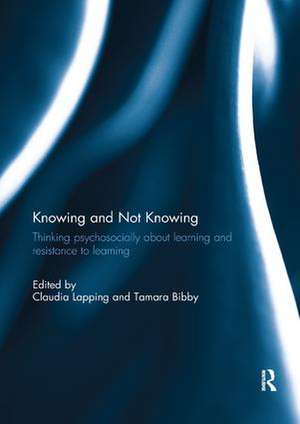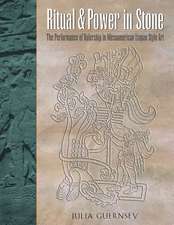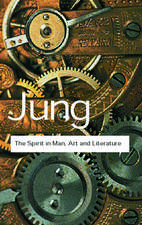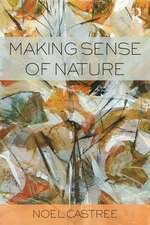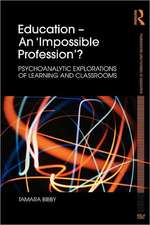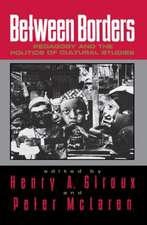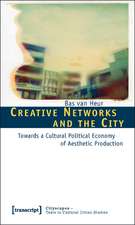Knowing and Not Knowing: Thinking psychosocially about learning and resistance to learning
Editat de Claudia Lapping, Tamara Bibbyen Limba Engleză Paperback – 3 ian 2019
This collection addresses these questions, drawing on a range of psychoanalytic and social theory, from Bion, Freud and Lacan, to Derrida, Kristeva and Zizek. Showcasing work from North America, Europe and Japan, contributors explore writing as a practice that can stabilise or unsettle subjectivities; the unconscious relations between school practices, subjectivities, educational spaces and ideologies; implications of the productive energies and the deadening inwardness associated with mourning and melancholia for formal and informal learning; and the authority we invest in apparently rigid or ephemeral institutional spaces. Strongly empirical as well as theoretical in approach, this collection will be of interest to students and academics seeking ways to resist normative orders of legitimacy and coherence in education and research. This book was originally published as a special issue of Pedagogy, Culture & Society.
| Toate formatele și edițiile | Preț | Express |
|---|---|---|
| Paperback (1) | 402.66 lei 6-8 săpt. | |
| Taylor & Francis – 3 ian 2019 | 402.66 lei 6-8 săpt. | |
| Hardback (1) | 1164.44 lei 6-8 săpt. | |
| Taylor & Francis – 4 mai 2016 | 1164.44 lei 6-8 săpt. |
Preț: 402.66 lei
Nou
Puncte Express: 604
Preț estimativ în valută:
77.05€ • 80.61$ • 64.00£
77.05€ • 80.61$ • 64.00£
Carte tipărită la comandă
Livrare economică 02-16 aprilie
Preluare comenzi: 021 569.72.76
Specificații
ISBN-13: 9781138392267
ISBN-10: 113839226X
Pagini: 182
Dimensiuni: 174 x 246 x 10 mm
Greutate: 0.45 kg
Ediția:1
Editura: Taylor & Francis
Colecția Routledge
Locul publicării:Oxford, United Kingdom
ISBN-10: 113839226X
Pagini: 182
Dimensiuni: 174 x 246 x 10 mm
Greutate: 0.45 kg
Ediția:1
Editura: Taylor & Francis
Colecția Routledge
Locul publicării:Oxford, United Kingdom
Public țintă
Postgraduate, Professional, and UndergraduateCuprins
Introduction - Journal as methodological archive: introduction to a cataloguing system for insecure knowledge 1. Interrupting the frame: reflective practice in the classroom and the consulting room 2. Bringing up gender: academic abjection? 3. Writing in a foreign language as a science of writing or grammatology 4. The enjoyment of space: the university campus in students’ narratives and photography 5. Learning to fail and learning from failure – ideology at work in a mathematics classroom 6. Reconstructing memory through the archives: public pedagogy, citizenship and Letizia Battaglia’s photographic record of mafia violence 7. Psychoanalytic notes on the status of depression in curriculum affected by histories of loss 8. Explorations in knowing: thinking psychosocially about legitimacy 9. Going spiral? Phenomena of ‘half-knowledge’ in the experiential large group as temporary learning community
Descriere
While some forms of knowledge emerge as legitimised and authoritative; other forms are resisted or repressed. This collection draws on a range of psychoanalytic and social theory, in order to explore writing as a practice that can stabilise or unsettle subjectivities; the unconscious relations between school practices, subjectivities, educational spaces and ideologies; implications of the productive energies and the deadening inwardness associated with mourning and melancholia for formal and informal learning; and the authority we invest in apparently rigid or ephemeral institutional spaces. This book was originally published as a special issue of Pedagogy, Culture & Society.
